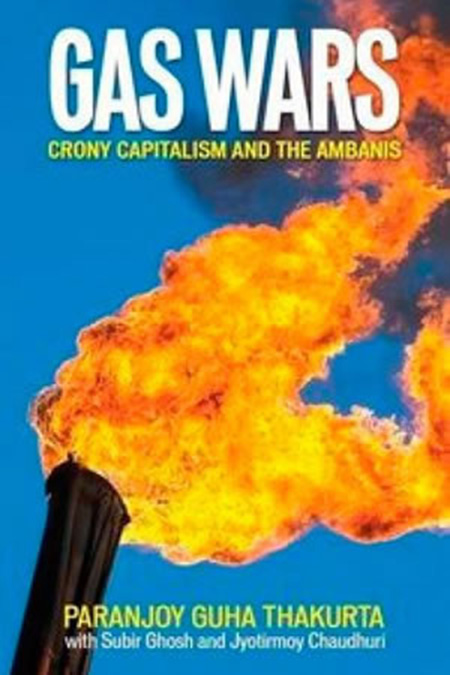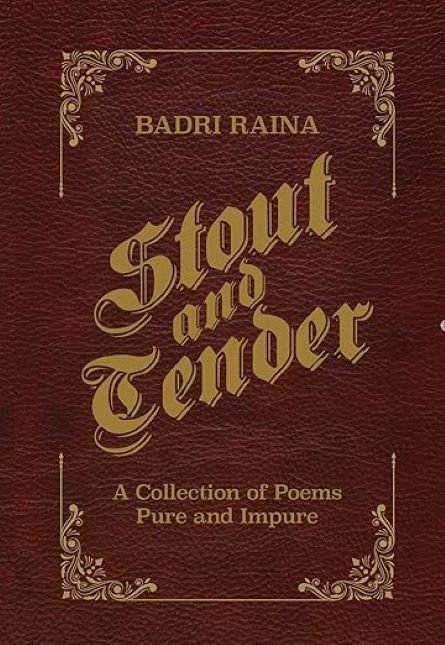Never before in the history of independent India have so many once-influential politicians, businesspersons and bureaucrats spent – in certain cases, still spending - time behind bars on corruption charges. Yet the current United Progressive Alliance government is widely perceived as being packed with people with flexible ethics. Prime Minister Manmohan Singh’s personal integrity has never been questioned, but he is also perceived as the head of a government, who chose to turn a blind eye to the corrupt practices of many, including some of his Cabinet colleagues.
Corruption in India is as old as corruption itself. Why then has a succession of stories on corruption in high places been hogging headlines in newspapers and magazines, determining topics tackled by television anchors, paralyzing Parliament, and dominating discourse in political circles? Why is corruption suddenly the favourite subject of discussion across the length and breadth of the world’s largest democracy – in the rarified confines of cocktail parties to the bustle of bazaars and street-corners, in the air- conditioned homes of the affluent to the hovels of the proletariat working in factories and farms?
The demand for the expeditious enactment of a new law to set up an effective anti-graft authority in the form of a Lok Pal gained ground precisely on account of the perception that the government was not doing enough to curb corruption in high places. This demand for a Lok Pal will continue to attract the imagination of large sections of Indians although our MPs have dilly-dallied and the movement led by Anna Hazare has evidently lost a lot of momentum. The Lok Pal bill that was passed by Lok Sabha may meet a fate similar to the bill to reserve seats for women in legislatures which was passed by the Rajya Sabha in March 2010.
Here’s a roll call of some of the more important politicians who are currently in jail or have spent time in jail in recent months: Andimuthu Raja, former Union Minister for Communications and Information Technology, three Rajya Sabha MPs, K. Kanimozhi (DMK), Suresh Kalmadi (Congress) and Amar Singh (formerly with the Samajwadi Party), former Chief Minister of Karnataka, B.S. Yeddyurappa of the Bharatiya Janata Party and former Chief Minister of Jharkhand Madhu Koda, not to mention former Karantaka Minister for Tourism, Youth Affairs and Infrastructure Development, Gali Janardhana Reddy.
A glance at the names of those accused in the second generation (2G) telecommunications spectrum scam would add to the list of luminaries who are or have been in judicial custody: Siddharth Behura, former Secretary, Department of Telecommunications, R.K. Chandolia, former Private Secretary to A. Raja, Swan Telecom promoters, directors and their associates Shahid Usman Balwa, Asif Balwa and Rajeev Agarwal, DB Realty promoter Vinod Goenka, Unitech’s Managing Director Sanjay Chandra, Sharad Kumar of Kalaignar Television and Bollywood film producer Karim Morani.
The nexus between business and politics was never out in the open as it is in this scam. It is being grudgingly acknowledged by even the most ardent votaries of the policies of economic liberalization that the country has followed over the last two decades that crony capitalism has become rampant. An important reason why Indian-style oligarchs – yes, that’s how one prominent head of a multinational corporation based in Mumbai publicly describes some prominent Indian industrialists – have flourished is on account of poor regulatory mechanisms that have been manipulated by the politician-businessperson- bureaucrat nexus. Corruption has not spared any section of Indian society: the military, the judiciary and even the media which is (ironically) supposed to be exposing corruption.
The government has dragged its feet in combating corruption. While the BJP has been harping about bringing back the wealth illegally stashed away in Swiss bank accounts by Indians, the government has deliberately kept the Mauritius route wide open to facilitate the laundering of black money. The government has also consciously allowed participatory notes to be used in stock-exchange transactions by foreign institutional investors which help conceal the source of funds coming into the country.
Indians in general – and perhaps Hindus in particular – have a rather nuanced view of corruption. Most Indians readily distinguish between the “more corrupt” and the “less corrupt”, between the one who steals a carrot or a radish (by uprooting the entire plant) and one who steals a brinjal (after leaving a few behind hanging on the plant for its owner) and especially between the “corrupt and efficient” and the “corrupt and inefficient”. Consider an example from the recordings of phone conversations of corporate lobbyist Niira Radia that were made by the Income Tax Department and recently leaked to the media. In one particular conversation, Tarun Das, the former executive head of the Confederation of Indian Industry, one of the most powerful associations of businesspersons in the country, after describing Kamal Nath, the former Union Minister for Road Transport and Highways as “Mr Fifteen Per Cent”, was heard saying that he was preferable to his predecessor who took as much as his successor but did not ensure that highways were built on time. Mr Das, of course, profusely apologized to Mr Nath subsequently for the “loose talk” he had indulged in during an interview.
But the overall scenario is not uniformly bleak. The Right to Information Act is proving to be an important tool in the hands of sections of the media and civil society activists who are fighting against corruption. Within the judiciary as well, there are many upright judges who are concerned about corruption in their midst and are firmly of the view that the criminal justice system in the country can – and should – be reformed expeditiously.
Corruption is a phenomenon that goes way beyond individual greed. It has much to do with transparency and accountability in the political, economic and social life of a nation. A small outfit like Wikileaks has shaken the might of the most powerful establishment on the planet, the government of the United States of America. The democratic uprising against corrupt regimes in North Africa and West Asia hold the promise of becoming defining moments in contemporary human history. India cannot be isolated from these winds of change.


